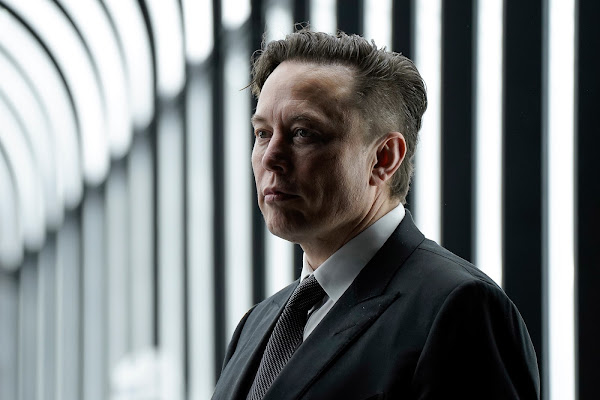Bloomberg News reported earlier on Thursday that Musk specifically mentioned job cuts as part of his pitch to the banks. One of the sources said that Musk will not make decisions on job cuts until he assumes ownership of the company later this year. He went ahead with the acquisition without having access to confidential details on the company’s financial performance and headcount.
Musk told the banks he also plans to develop features to grow business revenue, including new ways to make money out of tweets that contain important information or go viral, the sources said.
Ideas he brought up included charging a fee when a third-party website wants to quote or embed a tweet from verified individuals or organizations.
Musk has also lined a up a new chief executive for Twitter, one of the sources added, declining to reveal the identity of that person. He told Twitter’s chairman Bret Taylor earlier this month that he does not have confidence in the San Francisco-based company’s management. Parag Agrawal, who was named Twitter’s chief executive in November, is expected to remain in his role until the sale of the company to Musk is completed.
Krystal Hu & Anirban Sen
The drama surrounding Elon Musk’ deal to acquire Twitter continues, and will probably stay a hot topic until the deal comes through, and afterwards… That he’s planning layoffs is hardly a surprise – he already started harassing prominent Twitter executives on Twitter, no doubt hoping they’ll quit before he fires them, saving him from paying their severance packages – nor is his lack of confidence in the current CEO – I continue to suspect he will seek to reinstate Jack Dorsey.

Musk also brought up several ideas to boost revenue for the company, such as paying “influencers” to create content, following a business model that helped make TikTok a powerhouse social media app, the people said. He also brought up the idea of subscription services that the company could sell.
The ideas came up in “working groups” with bankers as he sought to secure financing for the deal, according to the people. The talks indicate the Tesla CEO isn’t just thinking about First Amendment issues when it comes to running Twitter, which he agreed to purchase for $44 billion this week. He wants to make money, too.
Reed Albergotti
These reports seem to support the conclusion that Musk ventured into this acquisition without any clear plan or deep knowledge of the company. His ideas for monetization are as poorly thought-out as his concept of open sourcing the ‘algorithm’ or his views on free speech. Coincidently, his broad public statements regarding free speech conflict with these private plans for paying influencers to create content. Presumably tweets by the influencers will artificially have greater reach (no idea how ranking paid tweets higher would synergize with an open-source algorithm), which makes it ‘premium speech’ I guess…
Then there’s charging a fee when a third-party website embeds a tweet… I mean, how long does it take to realize that website owners can simply screenshot a tweet and post it that way, without any linking or embedding?! Screenshotting aside, Twitter embeds are simply bits of text wrapped in HTML, coupled with a script to give them proper styling and render the media. Websites could remove this script when embedding and develop their own, or just style the quoted text in a distinctive way with CSS. This was recently highlighted when Twitter altered the script to blur our deleted tweets, a decision they later reversed.
Here on my blog, I inserted Twitter’s script in the blog template to make it more efficient, and before embedding individual tweets I remove the <script> portion. If and when I decide to drop this script, it will only take a couple of edits to the template, while my past posts will remain unchanged, except the embedded tweets will lose their ‘official’ look. This whole convoluted mess with Twitter is a good reminder that we should try to retain control of the content we post online. I’m very glad I kept my blog running all these years. Even if Blogger is not exactly a safe haven long-term – I suspect most Google executives are unaware it’s still around and running on their servers, one bad quarter away from being axed – I can nevertheless export my post history and recreate it elsewhere, which wouldn’t be that easy with Twitter (wouldn’t make much sense either, given Twitter’s exceedingly real-time nature).
In the bare bones statement announcing the deal, Musk said that he wants to make Twitter better than ever
by enhancing the product with new features, making the algorithms open source to increase trust, defeating the spam bots, and authenticating all humans
. Twitter’s Chief Executive Officer Parag Agrawal told employees on Monday that it would be business as usual until the deal closes.
Musk didn’t make a similar presentation of his plans and ideas, including layoffs, to Twitter’s board, according to a person familiar with the matter. The board evaluated the deal primarily on its price, relative to Twitter’s own modeling of its future financial performance, the person added.
Liana Baker, Michelle F Davis, Kurt WagnerIt remains unclear how this saga will unfold for the company and Musk. Some suggested he would back down, eager to retain Tesla’s value, which dropped considerably after the Twitter deal was accepted by the board. If he eventually becomes the owner and takes Twitter private, the most likely outcome seems to be that Twitter will struggle to improve, will quickly lose users and relevance, fading away like Myspace and Tumblr before it, and Musk will end up selling it for a fraction of the acquisition price.
Random closing thought: Musk's slogan for this hostile takeover should have been: “Make Twitter great again!”
Post a Comment